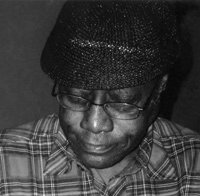rev. of In the Mouth by Eileen Pollack
In the Mouth, stories and novellas by Eileen Pollack (Four Way): How’s this for brave? One narrator, a son, is obsessed with fulfilling his dying father’s request for a belated circumcision, even at the son’s own hands. How’s this for unflinching? Another narrator, a mother, is troubled by something as normal but taboo as a kind of lust for her newborn son’s attentions. In the six stories and novellas that make up her latest collection, Eileen Pollack exhibits the fearless gift of taking the "un" out of unspeakable.
Best of all: she does it with precision. A nursing mother admits "vague irritation" at her newborn’s insistence at her nipple "as if a street-corner beggar kept pulling at her arm." A young doctor reluctantly asking intimate questions of a woman patient is "shy as a boy whose mother has asked him to unhook her brassiere."
Widening her lens, Ms. Pollack stares unblinking at the larger groups to which these all-too-human behaviors obtain. She scores Christians for being "stingy, not only with their money but with their love," as well as a bunch of Hasidic Jews for channeling money for a camp for retarded teens into a getaway for themselves. (If anti-Semitism can ever be said to be funny, she tests its outside limit.) Even a well-meaning married couple, subset of a group we all recognize if can’t necessarily name, doesn’t escape the marksmanship of her pen: "They signed petitions. They volunteered. They were just a little too earnest. It wasn’t that their lives were untroubled… They saw heartbreak every day. But these troubles didn’t seem to trouble them. It was as if they were standing in the rain, talking about how wet they were getting, but you could see the water rolling right off their Gore-Tex shells."
One senses that it’s anger as well as affection—and often a blend of the two, with grief for the human comedy tossed somewhere in the mix—that fuels her remarkable specificity. The shaggy head of an old man smells of "urine, sardines, and Vitalis." Another who keeps the trunk of his car "cleaner than most people kept their mouths," replaces a divot during a golf game with "the care a plastic surgeon might bestow upon repairing a young girl’s face." In between forking bites of beef macaroni into his maw, yet another old-timer delivers a hug so monumental that it leaves him "as shaken as a soldier who has darted across a field to grab a fallen comrade." Gentleness shares space in the heart with brutality.
Perhaps inevitably, nowhere is Ms. Pollack more fraught than in describing the act of making love between middle-aged people with parent troubles. In the final story, "Beached in Boca," the woman is someone who prefers her beach water choppy. The man is a toy importer, someone whose father has scandalized his Florida retirement community with a particularly unseemly murder and who is endeavoring to care as little as possible about anything anymore. Nevertheless there’s this: "He pressed one hand against her breast while sliding the other hand up her thigh. For some reason, she was reminded of the flat wood box in which a person could slip a coin and make it disappear. All those years importing novelties seemed to have given Adam Haber the sleight-of-hand required to remove a woman’s underwear without taking off her shorts. He could palm her hand and make it vanish, and then, with a sideways smile, lay it back inside her ribs. It was a trick, but not a bad trick." —Daniel Asa Rose
Daniel Asa Rose edits The Reading Room, a literary journal, and is the author of three books: the story collection Small Family with Rooster, the novel Flipping for It, and Hiding Places, a memoir.

